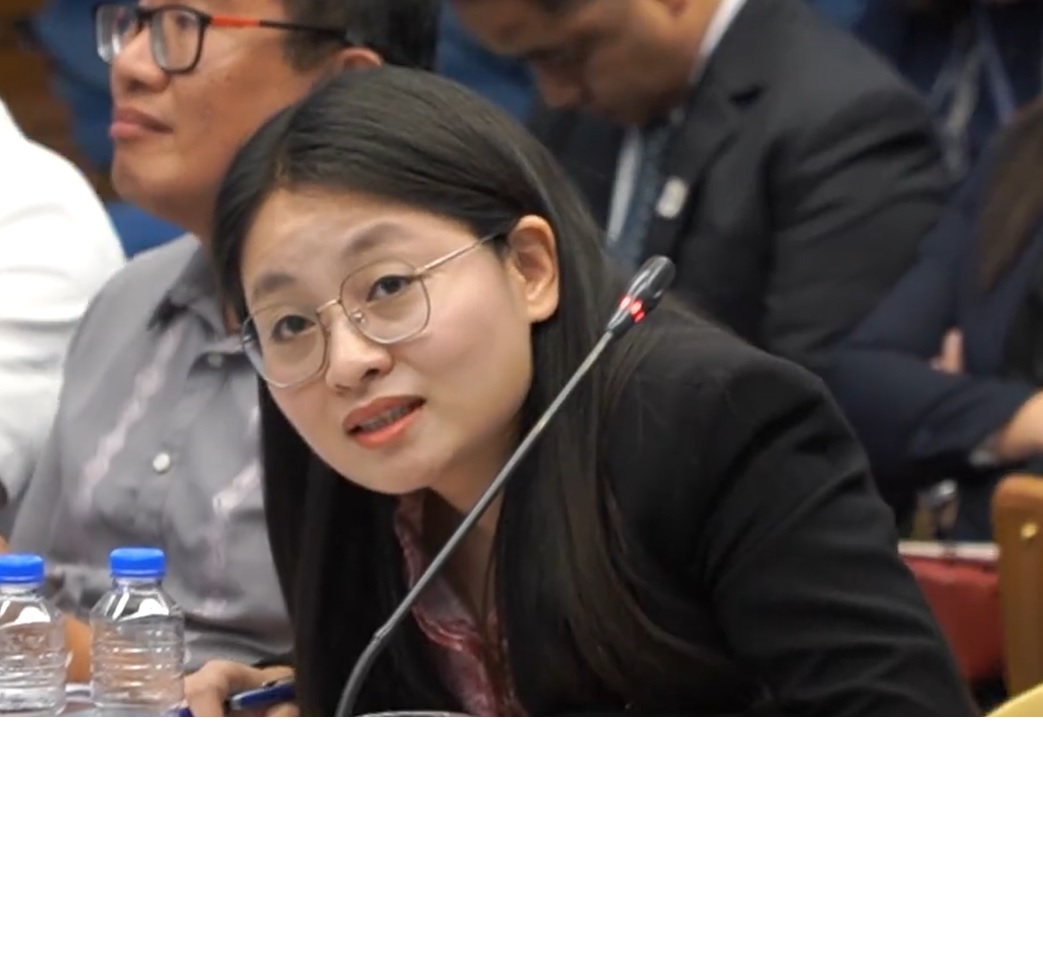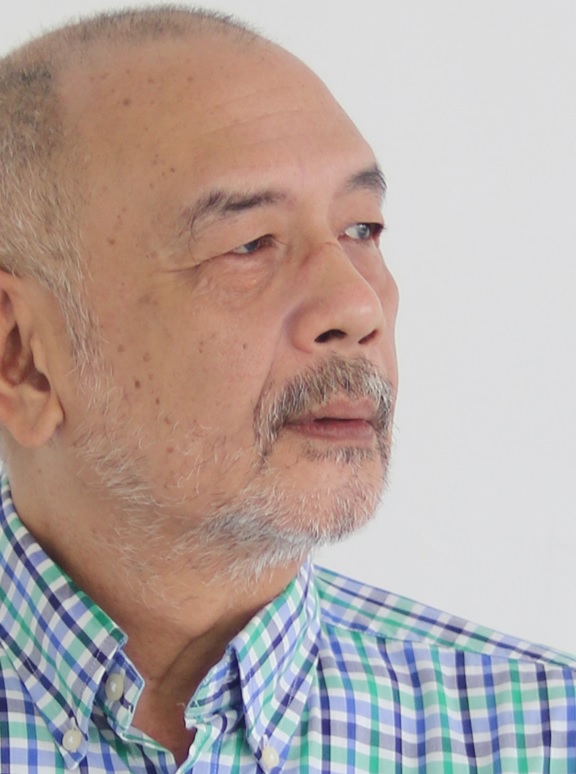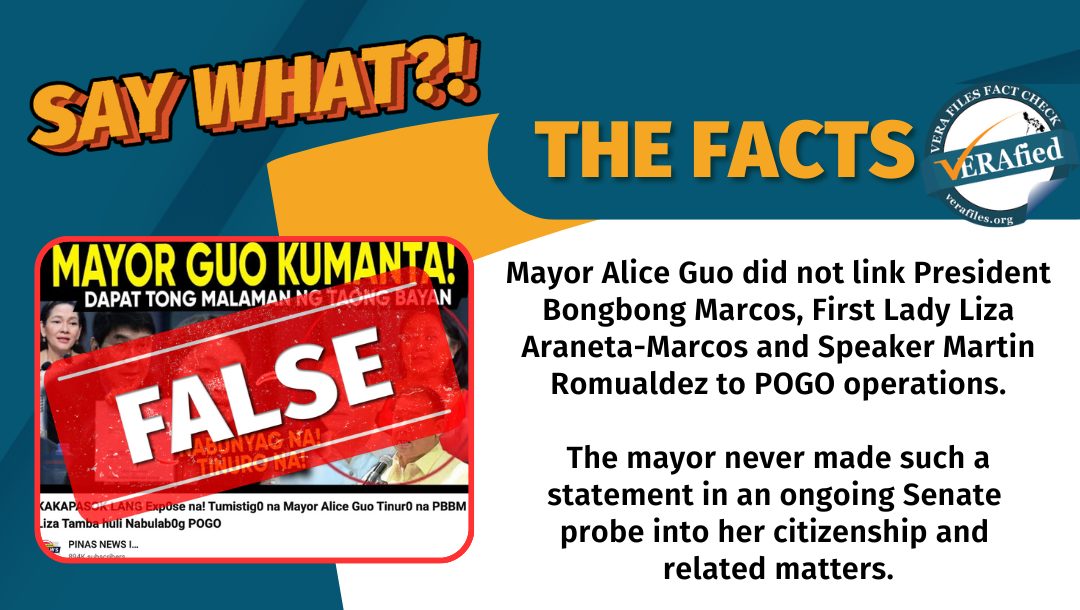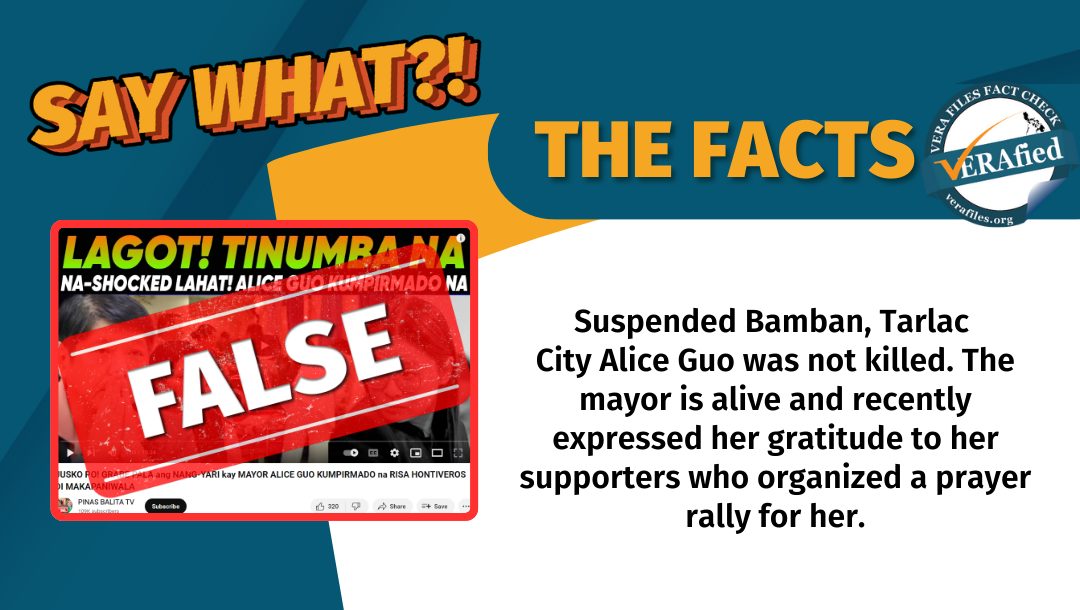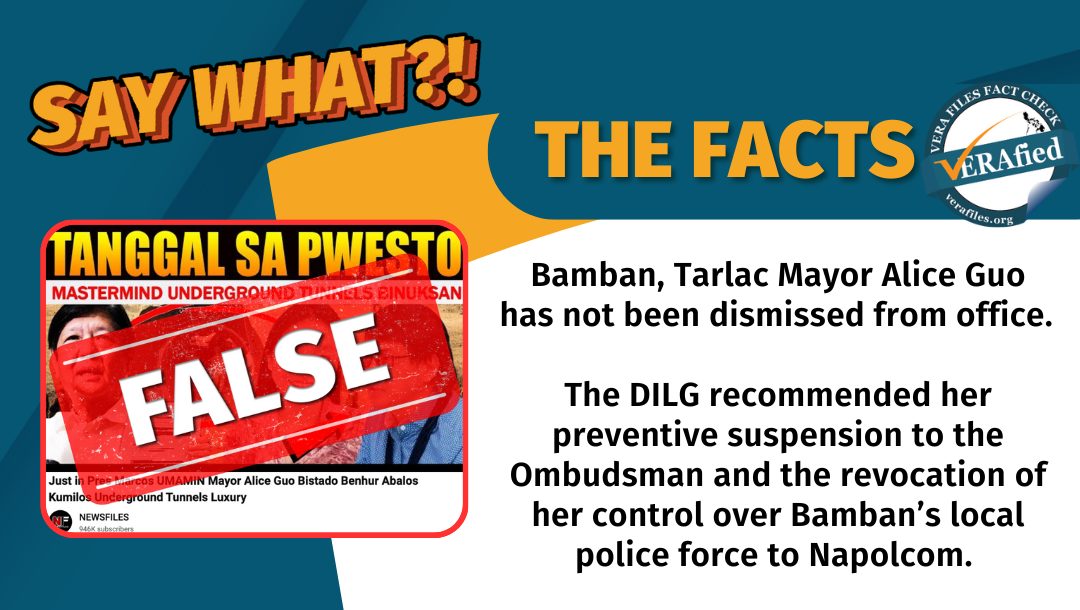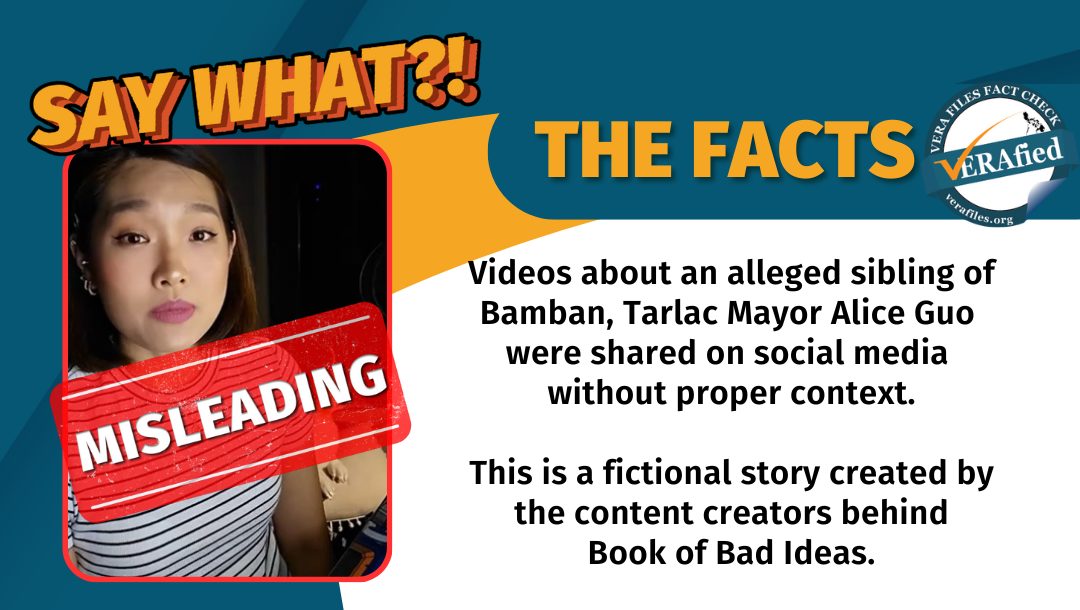It was probably the obituary announcing the death of good governance in the Philippines, although we know it has long been in rigor mortis.
Its microcosm was the little town of Bamban (population 78,260), a 2nd class municipality on the border of southern Tarlac and the northern Pampanga town of Mabalacat. Its mountainous region on the west, comprising about two thirds of the municipality’s total land area, abuts the province of Zambales.
In the 2022 national elections, there were seven candidates for municipal mayor of Bamban – 1 from the Nationalist People’s Coalition (NPC), 1 from Aksyon Demokratiko, 1 from PDP-Laban, and 4 independent candidates. Its electorate numbered 45,008 registered voters.
The most popular of the seven was Jose Mallari “Joey” Salting Jr. The late businessman Eduardo “Danding” Cojuangco of Tarlac once led Salting’s party, the NPC, in 1992. Salting was the chairman of barangay Anupul, the town’s biggest barangay with a population of 21,794, accounting for 27.85% of the total population of Bamban.
Popular as he was, that was as far as Salting could go, however. On election day of May 9, 2022, he lost his bid for mayor of Bamban. It is a perplexing puzzle that he lost by only a small margin of 468 votes (16,035) to an opponent who was a neophyte in Bamban politics (16,503) and one who was not even a natural-born citizen of Bamban. What happened?
The proclaimed winner, Alice Guo, was an independent candidate who lived in a so-called hog farm in barangay Virgen de los Remedios (Bambanenses shorten it to barangay VDR, also known by its erstwhile name Pacalcal), one of Bamban’s smallest barangays (population 2,870, accounting for only 3.67% of the town’s total population).
As is generally the rule in Philippine local elections, the deciding vote is almost always determined by vote buying, the price of which has exponentially risen in recent years. In her Statement of Contributions and Expenditures (SOCE), Guo declared her total campaign expenses at P134,693.80 for travel, incidental expenses and printed materials.
As we all know, however, the SOCE is one of the fakest documents ever. Candidates can selectively hide other contributions because money can fatten their own pockets. Expenses for vote buying, naturally, are excluded as well. It is one of the most damaging aspects to Philippine democracy that this document has become severely falsified yet is often overlooked because its falsity has become the norm.
Guo has declared in the senate hearing that her campaign expenses came from “friends in the hog-raising industry and from the previous administration,” referring to the previous Bamban mayor Jose Antonio Feliciano who had endorsed her candidacy. Feliciano thus is easily suspect.
The factors that led to her victory are definitely outside what you see in her SOCE.
First, Guo was endorsed by the Iglesia ni Cristo. Her Facebook post after the elections said it all like how traditional politicians say it: “Maraming salamat po sa inyong pagpapahayag ng suporta sa ating mga kapatid mula sa Iglesia ni Cristo lalo’t higit sa pangunguna ng inyong Tagapamahalang Pangkalahatan Kapatid na si Eduardo V. Manalo. Ako po ay malugod at taos-pusong nagpapasalamat sa kapatiran sa inyong pagtitiwala sa inyong lingkod.”
(To our brothers and sisters from the Iglesia ni Cristo, thank you very much for expressing your support, especially for the leadership of your Executive Minister Brother Eduardo V. Manalo. I am pleased and I sincerely thank the fraternity for your trust in your servant.)
Second, it appears that there was another major factor that easily overwhelmed Salting’s popularity. Bamban informers, asking for anonymity, came forward to reveal that Guo bought votes at the rate of P5,000 to P10,000 per voter. This writer admits that such information may not be verifiable. Vote buying is an accepted norm in Philippine elections but difficult to document because the modus operandi is clandestine. Guo herself will certainly deny that she bought votes. As a norm, all candidates say that.
If this is true, it can be said therefore that the election was Salting’s. True enough in the October 2023 barangay elections, Salting won again for Anupul, and was subsequently elected as ex-officio member of the Provincial Board of Tarlac Province as chair of its Liga ng Mga Barangay.
One informer requesting anonymity feared ostracism from Bamban residents. In the almost two years that Guo has sat as mayor, she has endeared herself to the town by opening a Jollibee branch on one side street across the municipal hall, and a McDonald’s branch on the opposite side. Bamban informers say she owns both franchises. And like Makati’s, she gives out birthday cakes to senior citizens.
The Iglesia ni Cristo endorsement was attributed by one informer who said his was a classified source as a former case officer in the intelligence community, as a crucial factor. The INC currently runs about 13 local congregations in Hongkong alone, the source claims. The INC website confirms that.
The source explains: “The INC cannot have the luxury to operate without the green light from the Chinese Communist Party,” an implication that refusal to support Guo will cost the INC their local churches in Red China, including one expansion in Peking.
Again, this writer clarifies that these are pieces of information that need verification. Yet these are angles that can probably explain the conundrum of the rise to influential power of an unknown with what appears to be vast financial resources at her disposal. The bottomline of this conundrum began from the existence of crime in Bamban’s Baofu POGO complex that Guo had facilitated during Feliciano’s term. The two raids that took place in the complex happened during Guo’s term as mayor. She has admitted on television that she gave the Pogo operations at the complex a work permit.
Which finally brings us to the crux of the matter – what exactly is Alice Guo’s connection to the Red China Communist Party?
David Zhang, the podcaster of China Insider, gives us a whistleblower’s analysis perspective. Disclaimer: the podcast is published by the Epoch Times media group, a New York based media company known to be far right (read: critical of the Red China Communist Party and hence is blocked in mainland Red China). Epoch is also identified with the Falun Gong, a Donald Trump supporter.
In a latest podcast however (Exclusive: Alice Guo’s Father ties to the CCP’s united front), Zhang provides some morsels of information that may possibly link Guo’s family to a CCP-managed money laundering enterprise.
“Alice Guo’s connection to the CCP is not to be undermined.” Zhang notes that after Guo won as mayor, two Red Chinese family associations published congratulatory messages for her win, as a “family pride.” These were the Hongkong Chaotai Guo Clan Association and the Hongkong Chaotai Association. Guo’s father Jian Zhong Guo was cited in a 2018 Chinese publication as honorary adviser of the Manila-based Philippines Chaotai Association.
In one event of the Chao Dai Kwok Clan Association published in a Hongkong paper (written by a Huang Yingya), the main guest was Zhu Feng, described as deputy director of the Coordination Department of the CCP Liaison Office. Zhang claims this office is a top spy agency of the CCP. It was also attended by Guo Hengyao, said to be the vice chairman of the Fujian Federation of Community Organizations.
These associations, Zhang explains, have ties to the so-called United Front, a “very massive network of overseas Chinese associations that speak for and do the bidding of the CCP.” Zhang posits that the presence of big communist party bosses in these events is an indication of ties to the CCP. In these events, there was the presence of Alice Guo’s father’s association members from the Philippines.
Zhang believes that Alice Guo’s election as mayor is consistent with the CCP United Front objective of achieving overseas reach. The work often comes with economic incentives because they do the work of the CCP. Among the fringe benefits are capital and designer clothes.
Zhang does not fail to mention one of Guo’s incriminating links: her business associates at the Bamban Baofu Pogo complex Baoying Lin and Zhang Ruijin. Ruijin was convicted in Singapore for the island state’s largest money laundering case ever. Ruijin was found to have $41 million in assets overseas, including shareholdings in a Philippine real estate development company. He is the fifth of 10 accused persons to be dealt with in relation to the case.
Zhang’s conclusion: “Alice Guo is a front of a large-scale scam and money laundering operation that got busted. She made her way into the mayor’s office hoping to expand that operation behind the scenes but was caught. And now she has to make up lies on the way.”
The views in this column are those of the author and do not necessarily reflect the views of VERA Files.
